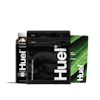Rest and Recovery for Every Athlete: Achieve More by Doing Less

More training doesn’t always lead to better results. Sometimes, the key to peak performance is knowing when to slow down. Pushing yourself without enough rest, fuel, or proper mental and muscle recovery can actually hold you back, rather than push you forward. There’s a common misconception that nonstop training leads to peak performance, but the real key is balance—considering all angles, including training, nutrition, rest, and recovery.
Let’s dive into why doing less, in the right way, can help you achieve more.
Why do rest and recovery matter just as much as training?
Supporting Long-Term Performance: It’s easy to think that progress happens only when you’re training, but the real magic also occurs during rest and recovery. When we work out, our muscles go through stress, resulting in tiny muscle fibre tears—that’s when the discomfort occurs. Often, this feeling remains for 2-3 days post-activity, serving as a reminder from your body that you’ve put in the hard work. It’s during muscle recovery, not the workout itself, that your body repairs these fibres, making them stronger through a process called muscle protein synthesis.
Hormones: Rest is also key for maintaining healthy hormone levels. Without enough recovery, overtraining can disrupt hormone levels, including elevated cortisol (your body’s stress hormone). While cortisol levels naturally fluctuate in response to exercise and stress, chronic overtraining without adequate rest can lead to suboptimal muscle repair and immune resilience, which may ultimately result in decreased performance. Additionally, insufficient recovery can affect reproductive hormones—reducing estrogen and luteinizing hormones in females, increasing the risk of menstrual irregularities, and potentially lowering testosterone levels in males, which can impair muscle development and energy levels.
Injury Prevention: Injury prevention is closely linked to rest. Pushing through without sufficient recovery puts extra stress on your body, making you more prone to both obvious and hidden injuries. By balancing intense training with proper rest and listening to signs of fatigue, you can avoid setbacks and reduce the risk of injury.
Mental Health & Motivation: Overtraining can lead to burnout in athletes, impacting their mood, self-esteem, and confidence. Just like physical recovery, mental recovery is essential. Chronic training without adequate rest can result in mental fatigue, leading to decreased motivation and focus.
How about sleep?
Sleep is another pillar of recovery that is often overlooked, yet it plays a vital role in an individual’s performance. A 2023 study showed that individuals who engage in regular physical activity tend to sleep, on average, 15 minutes longer each night, leading to improved sleep quality and allowing the body to restore and recover more effectively. On the flip side, inadequate sleep can increase the risk of injury. Poor sleep quality and insufficient sleep can slow reaction times, raising the risk of injury during physical activities.
3 Top Tips for Better Sleep:
Limit screen time before bed.
Create a calming bedtime routine such as taking a warm bath, or reading a chapter of a book.
Keep your environment dark an hour or so before bedtime.
The Role of Nutrition in Recovery: Proper nutrition is key to effective recovery. When your body recovers well, you’ll be better prepared for your next training session. Further information on nutrition for a hybrid athlete can be found here, but here are some top post-workout tips:
Repair: Protein is often talked about in the context of recovery, and it’s for good reason—it’s essential after a workout. Consuming protein helps rebuild muscle fibres that break down during exercise, aiding in muscle repair and growth.
Refuel: Carbohydrates are vital for restoring energy levels post-workout. For immediate recovery, opt for easily digestible, quick-release sources such as a jam sandwich or chocolate milk. Whole grain options like wholemeal bread, rice, and sweet potatoes are excellent choices for subsequent meals to support sustained energy levels.
Rehydrate: Dehydration can increase muscle soreness, so it’s important to drink plenty of water throughout the day. Replenish lost fluids through water, and when needed, include salty foods (e.g. a salty snack) to help maintain electrolyte balance.
Tips for Sustainable Performance:
Prioritise Rest Days: This can include active recovery, low-intensity activities to help your body recover, light stretching or walking, and keeping you moving without overloading your muscles.
Embrace balance & Listen to Your Body: Customise your training to find the right mix of intensity and recovery, while paying attention to your body’s signals to avoid overtraining and ensure long-term progress.
Avoid Low Energy Availability: When energy intake doesn’t match the energy expended, it can lead to Relative Energy Deficiency in Sport. This results in insufficient energy to fuel both your workouts and essential daily functions, disrupting hormones, muscle repair, and even immune health.
The Takeaway? Training hard is great, but only if you’re allowing enough time for your body to recover and adapt. More isn’t always better—sometimes, less is exactly what you need to perform at your best.
Words: Jessica Stansfield RNutr, Huel Nutrition Manager
Join the Huel family
Get the scoop on exclusive offers and product launches.
This site is protected by reCAPTCHA and the Google Privacy Policy and Terms of Service apply. You can unsubscribe at any time. Huel Privacy Policy.





